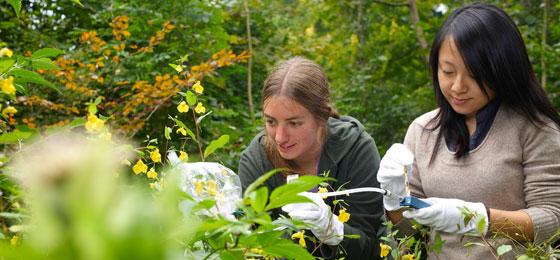Doc.Mobility

The last submission deadline for Doc.Mobility took place on 1 september 2020. The Doc.Mobility instrument will not be continued after 2020. As of 2021, the SNSF will fund the mobility of doctoral students under "mobility grants in projects". Doctoral students who are not employed in an SNSF project should contact their university if they wish to conduct a research stay abroad.
Details under "News" ->
.
Documents
Forms, regulations and guidelines
- Regulations Doc.Mobility (PDF)
- Guidelines for submitting a follow-up proposal (PDF)
- Information set "SNSF mobility fellowships" (PDF)
- Fellowship rates (PDF)
- Useful information for stays in the USA (PDF)
- Funding Regulations (PDF)
- General implementation regulations for the Funding Regulations (PDF)
- Regulations of the National Research Council on the treatment of scientific misconduc (PDF)
Evaluation documents
Supplementary measures
FAQ
a) Is it possible during the stay abroad of a Doc.Mobility fellowship to return or stay in a research location that is the same as the place where one was educated?
A further stay or return at the institution of education, where the bachelor's or master's degree (or equivalent) was obtained, is formally not possible. Doctoral students matriculated abroad must move to a new institution for the fellowship. However, a research stay at the same geographic location (e.g. city) but at a different institution (other than the institution of education or institution of matriculation as a doctoral student) is formally possible. In this context, it should nevertheless be noted that the expected extent of mobility represents an important evaluation criterion. It is a primary aim of the mobility fellowships to promote the mobility and related aspects (promotion of the scientific independence, improvement of the scientific/academic profile).
b) What administrative concerns and possible additional costs must be borne in mind when choosing a host institution for an SNSF mobility fellowship
You should clarify as early as possible whether a stay at the host institution is subject to any conditions. For example, some host institutions ask fellowship holders to contribute a sum of money towards the institution's overhead. The SNSF does not cover any overhead costs incurred at host institutions abroad, however. The host institution may also ask for funds to cover the research costs. The SNSF can contribute a maximum of CHF 3,000 per year towards research costs if certain requirements are met. Fellowship holders who bring their own financial contribution for covering living costs should generally receive adequate support from their host institution; this support should encompass, among other things, infrastructure as well as any consumables. In this context, please take note of the "Information set SNSF mobility fellowships (PDF)". Please also clarify your status at the host institution. Some host institutes, especially in France, demand that fellowship holders be officially employed at the institution and that the SNSF directly transfers the fellowship to the host institution. In such cases, it is possible that a large portion of the fellowship is spent on social security contributions. The amount that ought to be available to the fellowship holders to cover their living costs is therefore reduced. Another solution, which may enable to keep the fellowship’s amount unchanged, would be that the beneficiary of the fellowship considers with the host institution the possibilities of signing a “hosting agreement for volunteer researchers” (“convention d’accueil pour chercheur/chercheuse bénévole”, similar status as for Researchers Emeritus).
Some host institutes, especially in the USA, also require minimum rates for their researchers, which may depend on the academic age after the PhD. Please clarify this with the responsible offices at the host institute as early as possible. The fellowship rates defined by the SNSF are binding for the year of approval. If the host institution increases the financial requirements, the SNSF will not be able to adjust the fellowship accordingly. In such a case, the SNSF expects the host institution to cover any financial gap.
c) Where can I find information on insurance and tax issues?
The "information set "SNSF mobility fellowships (PDF)" gives you detailed information on tax and insurance issues as well as on other administrative matters.
d) Until when is it possible to postpone the beginning of the fellowship?
The mobility fellowship must be started no later than twelve months after the date of the ruling. Upon request, it may be possible to postpone the beginning for a further twelve months in case of important reasons such as an illness, an accident or family duties. The grantee must submit with her/his justified request a new confirmation letter from the host institute and eventually an updated research plan. Other funds received, for example another fellowship, do not represent a valid reason to postpone the beginning for more than twelve months.
e) My host institution has increased its minimum funding requirements. Does the SNSF cover the difference between the granted fellowship and the minimum requirement of the host institution?
No, the fellowship rates defined by the SNSF are binding for the year of approval. If the host institution increases the financial requirements, the SNSF will not be able to adjust the fellowship accordingly. In such a case, the SNSF expects the host institution to cover any financial gap.
News
Year
Statistics